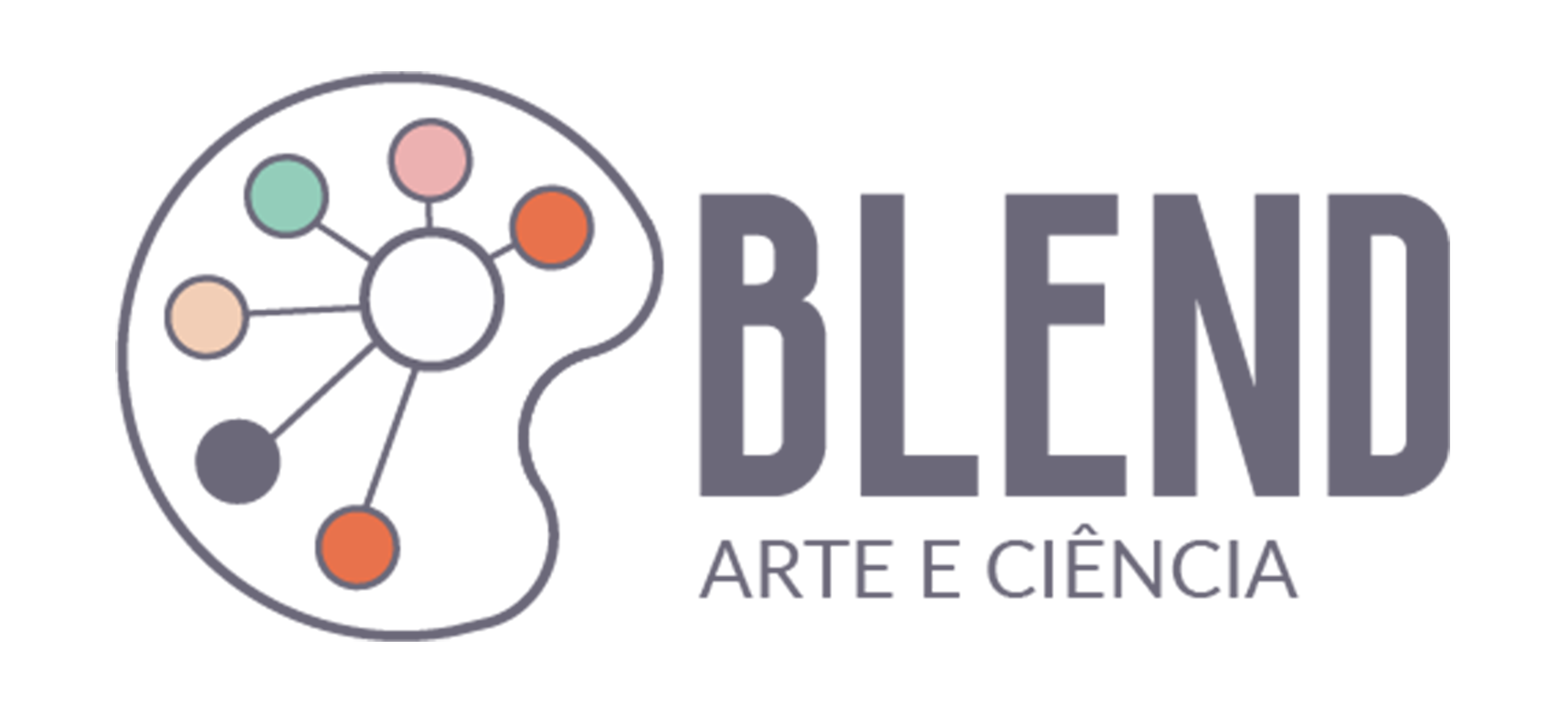Anti-Marta
Marta de Menezes
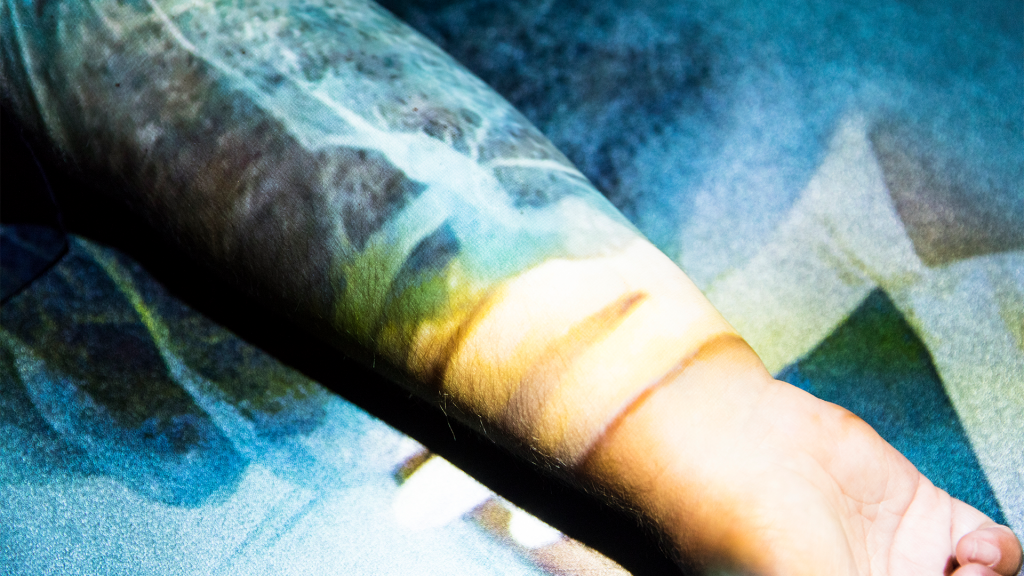
PT//
Anti-Marta é uma instalação que explora os limites da individualidade humana numa sociedade que cada vez mais se baseia na biotecnologia. Representa a relação entre uma artista e um cientista, mas também a fronteira entre a arte e a ciência, e os limites da nossa própria identidade. Marta e Luís, uma artista e um imunologista, têm um pacto para a vida de intimidade, matrimónio e união. A procura por uma representação artística deste pacto conduziu-os a transplante de excertos de pele. Em ambos os casos, o resultado obtido é uma tensão entre as suas individualidades e a sua relação. Os transplantes de pele também foram rapidamente rejeitados, devido às diferenças imunitárias. Contudo, em ambos os casos, o pacto prevalece. As linhas de células imortais conseguem coexistir no espaço virtual da instalação, onde projeções de vídeo de culturas de células vivas se intersetam. No mesmo sentido, a rejeição da pele levou à produção de moléculas (anticorpos) que vão ser capazes de identificar o outro para sempre, como se tivessem adquirido um sexto sentido que pode ser visualizado através do isolamento dos próprios anticorpos. Anti-Marta mostra-nos como podemos criar laços com outro, e mesmo assim manter a ideia de identidade. Em Anti-Marta, não se trata apenas de uma mulher e um homem que reivindicam a sua relação e a sua própria identidade, mas também uma artista e um cientista, que demonstram a conexão entre duas disciplinas, enquanto afirmam a sua singularidade.
ENG//
Anti-Marta is an installation exploring the limits of human individuality in the face of an increasingly biotech-based society. It represents the relationship between an artist and a scientist, but also the boundary between art and science, and the limits of our own identity. Marta and Luis, an artist and an immunologist, have a pact for life: mated, married, united. Their search for an artistic representation of such a pact led to the transplantation of skin grafts. In both cases, the outcome was a tension between their individualities and their bonding. The skin transplants were also rapidly rejected, given the immunity differences. Yet, in both cases the pact can live on. The immortal cell lines can co-exist in virtual space, where video projections of living cell cultures intersect in the installation. On the same note, the rejection of skin has led to the production of molecules (antibodies) that forever will be able to identify the other, like the acquisition of a sixth sense that can be visualized through the isolation of appropriate antibodies. Anti-Marta shows how we can bond with another and yet maintain a strong sense of identity. In Anti-Marta, it is not only a woman and a man who assert their relationship and identity, but also an artist and a scientist, who demonstrate the connection between the two disciplines while maintaining their uniqueness.
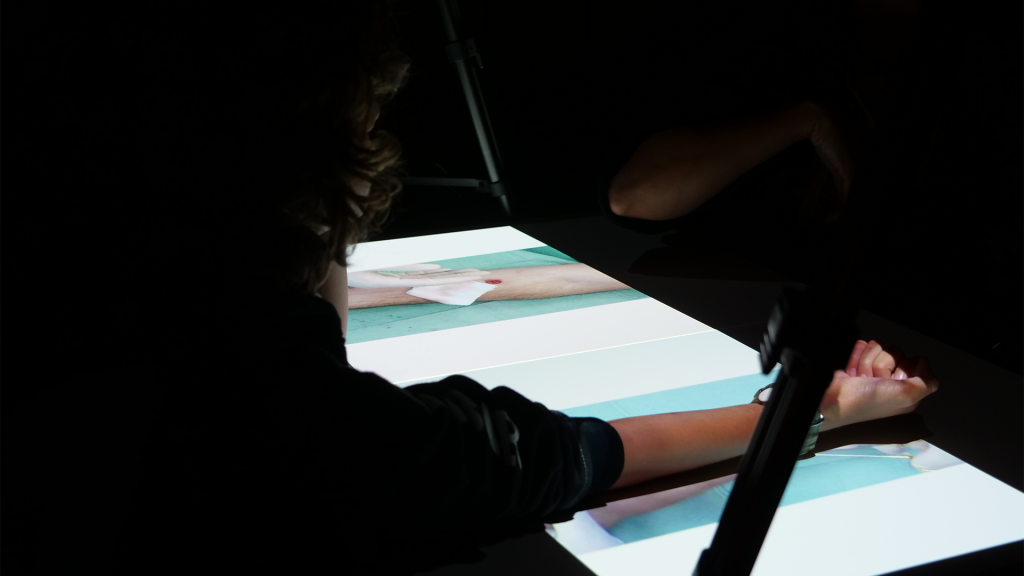
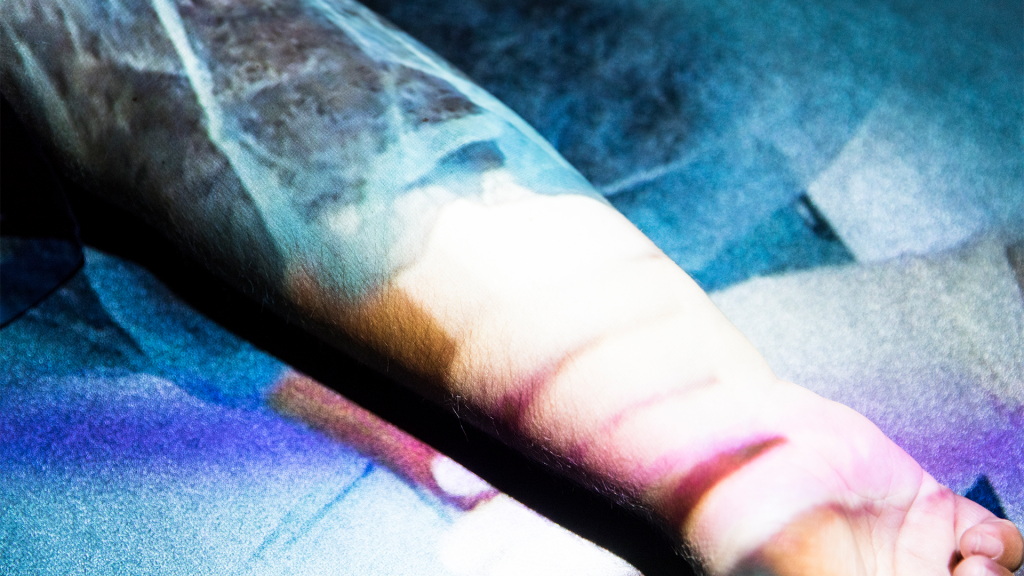
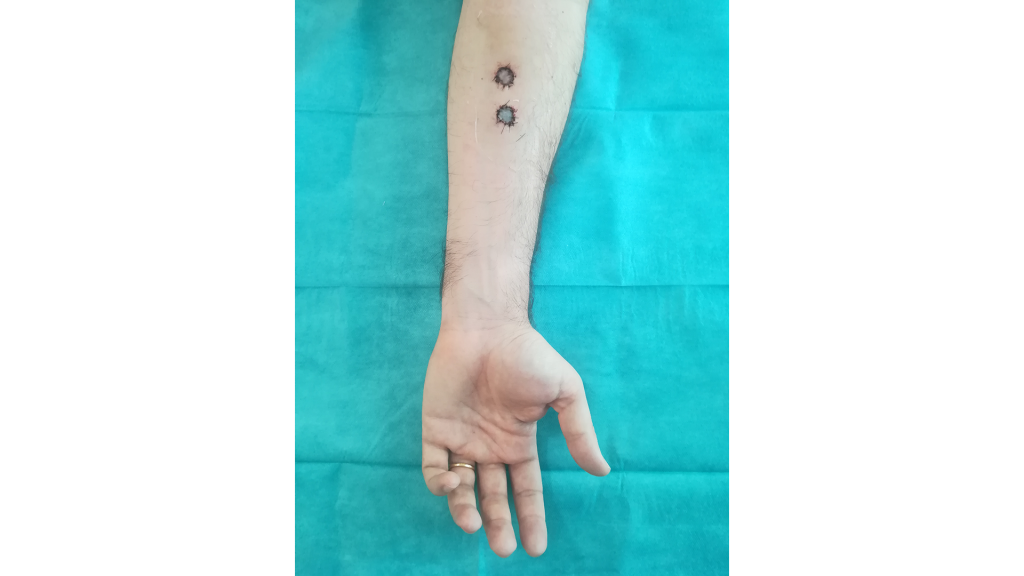
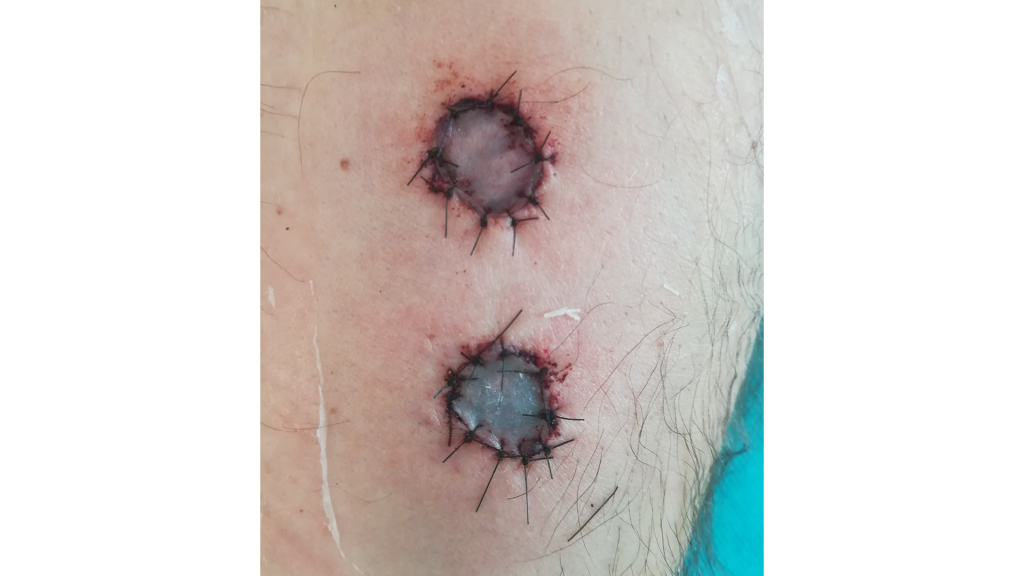
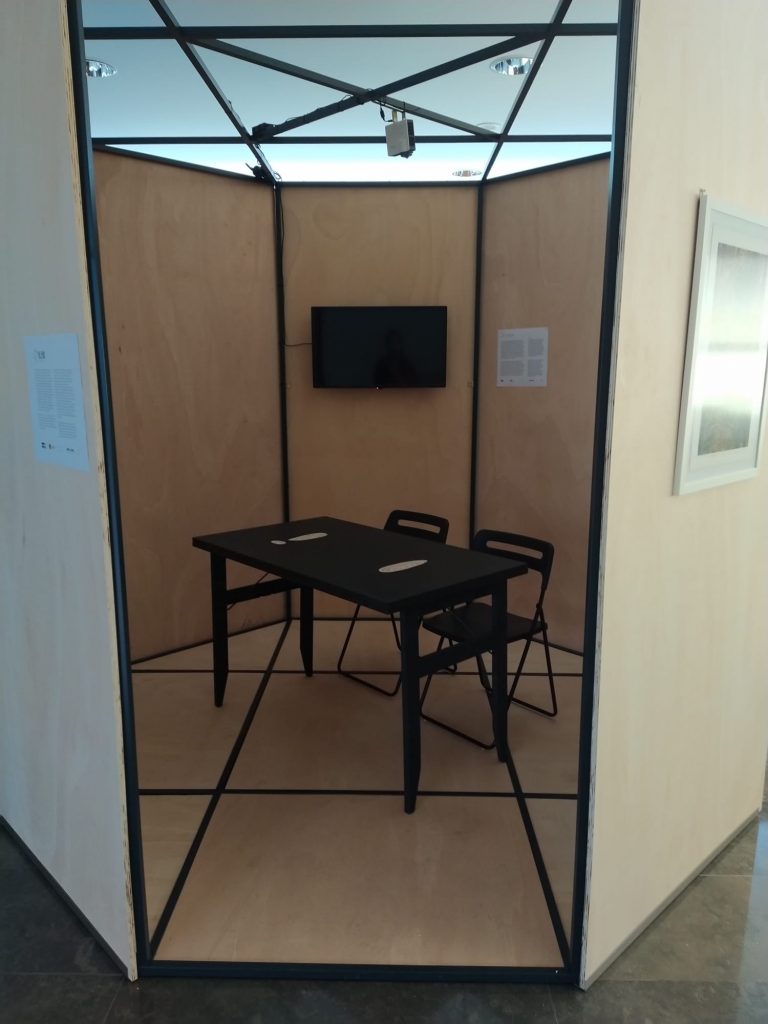
BIO
PT//
Marta de Menezes (nascida em 1975) é uma artista portuguesa, licenciada em Belas Artes pela Universidade de Lisboa e Mestrado pela Universidade de Oxford. De Menezes é diretora da Cultivamos Cultura, a principal instituição dedicada à arte experimental em Portugal e da Ectopia, dedicada a facilitar o trabalho de colaboração entre artistas e cientistas. Marta de Menezes tem trabalhado na intersecção da arte e biologia desde finais dos anos 90, no Reino Unido, Austrália, Holanda e Portugal, explorando as oportunidades conceptuais e estéticas oferecidas pelas ciências biológicas para a representação visual nas artes.
O seu trabalho tem sido amplamente exposto nos principais locais em todos os continentes, apresentado na maioria das antologias dedicadas à bioarte, discutido em dissertações de doutoramento, e considerado um exemplo de investigação nas artes visuais. Entre as mais recentes exposições internacionais, De Menezes foi convidada para o Festival Ars Electronica de 2019: Out of the Box, e organizou dois Jardins Ars Electronica 2020 (Lisboa e São Luís). Foi convidada para ser a representação oficial de Portugal na Bienal de Design de Londres 2016 e exposta na Bienal de Pequim de Arte Nova Media 2016. De Menezes foi nomeada em 2015 pelas revistas Time and Fortune para os Prémios de Arte e Tecnologia 2015.
Além do seu trabalho como artista, De Menezes curou grandes exposições internacionais, incluindo para a Capital Europeia da Cultura (Portugal), Festival Kontejner (Zagreb), Fundação Verbeke (Bélgica) e este último três anos as edições do FACTT – Festival Transnacional e Transdisciplinar de Arte e Ciência que teve lugar em Lisboa, Nova Iorque, Cidade do México, Berlim e Toronto.
ENG//
Marta de Menezes (born 1975) is a Portuguese artist, with a Degree in Fine Arts from the University of Lisbon and a MSt from the University of Oxford. De Menezes is director of Cultivamos Cultura, the leading institution devoted to experimental art in Portugal and Ectopia, dedicated to facilitating the collaborative work between artists and scientists. Marta de Menezes has worked in the intersection of art and biology since the late 90s, in the UK, Australia, the Netherlands, and Portugal, exploring the conceptual and aesthetic opportunities offered by biological sciences for visual representation in the arts.
Her work has been widely exhibited in major venues in all continents, presented in most anthologies devoted to bioart, discussed in doctoral dissertations, and considered an example of research in the visual arts. Among the most recent international exhibitions, de Menezes was invited for the 2019 Ars Electronica Festival: Out of the Box, and organized two 2020 Ars Electronica Gardens (Lisbon and São Luís). She was invited to be the official representation of Portugal at the London Design Biennale 2016 and exhibited at the Beijing Biennale of New Media Art 2016. DeMenezes was nominated in 2015 by Time and Fortune magazines for the Art and Technology Awards 2015.
Besides her work as artist, de Menezes curated major international exhibitions including for European Capital of Culture (Portugal), Kontejner Festival (Zagreb), Verbeke Foundation (Belgium) and this last three years the editions of FACTT –Transnational and Transdisciplinary Festival of Art and Science that took place in Lisbon, New York, Mexico City, Berlin and Toronto.
